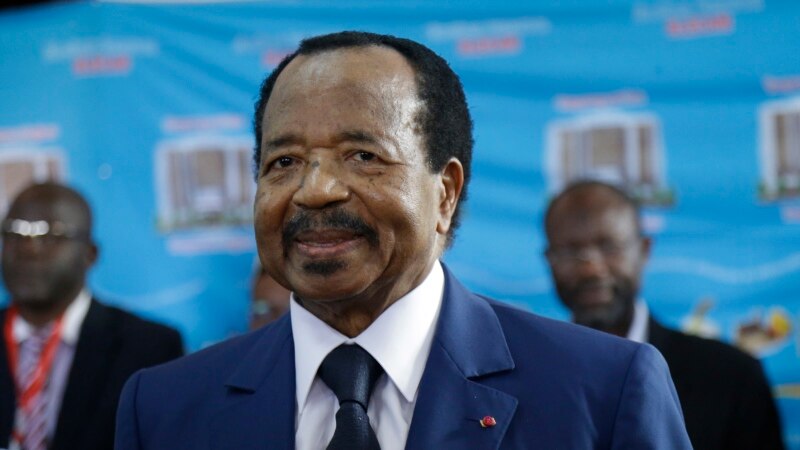Cameroon’s government has threatened to arrest members of two opposition parties, accusing them of seeking to build alliances and alliances for a transitional government to overthrow 90-year-old President Paul Biya, who has been in power for more than four decades.
Minister of Territorial Administration Paul Atanga Ngi last week ordered an end to the activities of the Cameroon Alliance for Political Change and the Alliance for Political Transition.
Ngi said only legally recognized political parties have the right to carry out political activities in Cameroon and those who join the two illegal alliances will be arrested.
Cameroonian opposition and civil society groups said the recent ban on the activities of the two alliances once again showed that Cameroon does not respect the basic rights of democracy and freedom.
Roger Justin Noa, a spokesman for the opposition Cameroon Renaissance Movement, said the opposition would not be intimidated by government officials and Biya supporters.
Instead, he said the Cameroonian government was nervous about the growing popularity of opposition leader Maurice Kamto after more than 30 civil society and opposition groups joined the Kamto-led coalition for political change.
Kamto claimed that he won the October 2018 presidential election and that Biya stole his victory.
Noah said the Political Alliance for Change is encouraging Cameroonians dissatisfied with Biya’s more than 40 years of rule to register to vote in the 2025 presidential elections, be prepared to defend their votes and report any incidents of fraud or irregularities.
Opposition parties say it is dishonest for the Cameroonian government to ban an opposition alliance while allowing other parties to drum up support for Biya’s ruling Cameroon People’s Democratic Movement.
Cameroon’s Communications Minister and government spokesman Rene Emmanuel Saadi said there was no reason for some opposition parties to build alliances for a political transition when state institutions were fully operational and Biya was undisputedly performing his duties as president.
In interviews broadcast this week on Cameroonian state broadcaster CRTV and several times in the past seven days on international media outlet RFI, Saadi said the opposition was trying to pressure Biya to announce whether he would be a 2025 candidate. Saadi said Biya would announce his decision shortly before the 2025 election.
The government has also threatened to arrest members of the alliance who it said visited jailed rebel leaders to negotiate an end to a separatist crisis that has killed more than 6,000 people in Cameroon’s English-speaking northwest and southwest regions. Separatists say they want an English-speaking country independent of the majority French-speaking country.
Cameroon’s opposition accuses Biya’s government of using excessive military force instead of using negotiation and dialogue to resolve what the opposition says is a political crisis in the Anglophone region.
Biya is Africa’s second-longest-serving leader, after President Teodoro Obiang Nguema Mbasogo of Equatorial Guinea, who has been in power since 1979.
Biya served as Cameroon’s prime minister and became president in 1982 after his predecessor, Cameroon’s first president after independence from France, stepped down due to health reasons.
Cameroon’s opposition and civil society say Biya rules with an iron fist and is not prepared to relinquish power until his death, but Biya’s supporters deny this.
Follow us on Google news ,Twitter , and Join Whatsapp Group of thelocalreport.in
